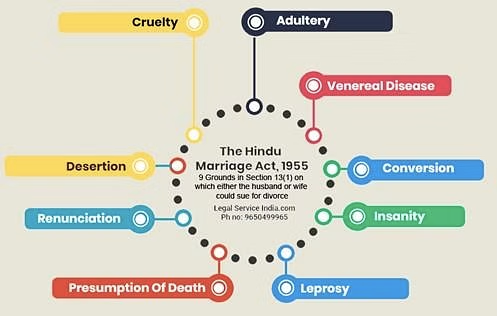A milestone in Hindu marriage reform in India
Relevance
- GS Paper 2 Salient features of Indian Society, Diversity of India.
- Tags: #HinduMarriageAct1955 #Self-Respect Marriages
Why in the news?
- The Indian Supreme Court’s recent decision has overruled a 2014 Madras High Court ruling, stating that advocates can indeed solemnize “self-respect” marriages under the Hindu Marriage Act’s Section 7(A).
- This provision recognizes marriages between Hindus, performed in the presence of relatives or friends without traditional rituals or priests. This legal recognition aligns with the Tamil Nadu government’s amendment to simplify weddings, eliminating the need for priests and traditional practices.
- The Court’s verdict, seen in cases like “Ilavarasan v. Superintendent of Police,” emphasizes that the public declaration of marital status isn’t a requirement for validity. The Court’s stance signifies a move towards modernizing marriage laws, respecting individual choices, and broadening the interpretation of valid marriage under Hindu law.
Central Idea
- The recent Supreme Court ruling on ‘self-respect’ marriages under Section 7(A) of the Hindu Marriage Act, 1955 has clarified the legal standing of these marriages.
- The court’s decision has significant implications for the validity and recognition of such unions, particularly in the state of Tamil Nadu.
Self-respect Marriages
- Amendment: The Hindu Marriage (Tamil Nadu Amendment) Act, 1967 introduced Section 7-A into the Hindu Marriage Act, 1955, applicable solely in Tamil Nadu.
- Recognition of ‘Self-Respect’ Marriages: Section 7-A recognizes and legalizes ‘self-respect’ or ‘suyamariyathai’ marriages, allowing them to be solemnized without the need for traditional rituals or priests.
- Ceremony Description: Such marriages are performed in the presence of relatives, friends, or other individuals, with couples declaring each other as spouses in a language understood by them. Exchange of garlands, rings, or tying a ‘thali’ (mangal sutra) is required. Registration remains obligatory.
Legal Controversy
- Madras High Court Ruling (2014): A 2014 Madras High Court ruling declared marriages solemnized by advocates as invalid, asserting that ‘self-respect’ marriages must not be secretive and should be celebrated publicly.
- Current Supreme Court Ruling: The recent Supreme Court ruling, passed by Justices S Ravindra Bhat and Arvind Kumar, overruled the 2014 Madras High Court decision.
Supreme Court’s Interpretation and Decision
- The Supreme Court clarified that there is no blanket ban on advocates solemnizing ‘self-respect’ marriages under Section 7(A) of the Hindu Marriage Act.
- The court held that ‘self-respect’ marriages can indeed be solemnized and recognized, and the 2014 Madras High Court ruling was set aside.
- The ruling was delivered in response to a petition filed by Ilavarasan, who sought recognition of his ‘self-respect’ marriage and the release of his wife from her parents’ custody.
- The Supreme Court’s decision is based on the interpretation of Section 7(A) and its application in the context of ‘self-respect’ marriages.
Precedents and Past Rulings
- In the case of Nagalingam vs. Sivagami (2001), the Supreme Court had already recognized the validity of ‘self-respect’ marriages under Section 7(A) of the Hindu Marriage Act.
- The court emphasized that the presence of a priest is not obligatory for a valid marriage, and parties can enter into a marriage with the participation of relatives, friends, or other individuals.
Conclusion
- The recent Supreme Court ruling has resolved the ambiguity surrounding the legality of ‘self-respect’ marriages solemnized by advocates under Section 7(A) of the Hindu Marriage Act.
- By overturning the previous Madras High Court ruling, the Supreme Court has clarified the validity and recognition of such marriages, ensuring that ‘self-respect’ marriages can be solemnized without the need for traditional rituals or priests in Tamil Nadu.
Source: The Hindu.
Mains Question




